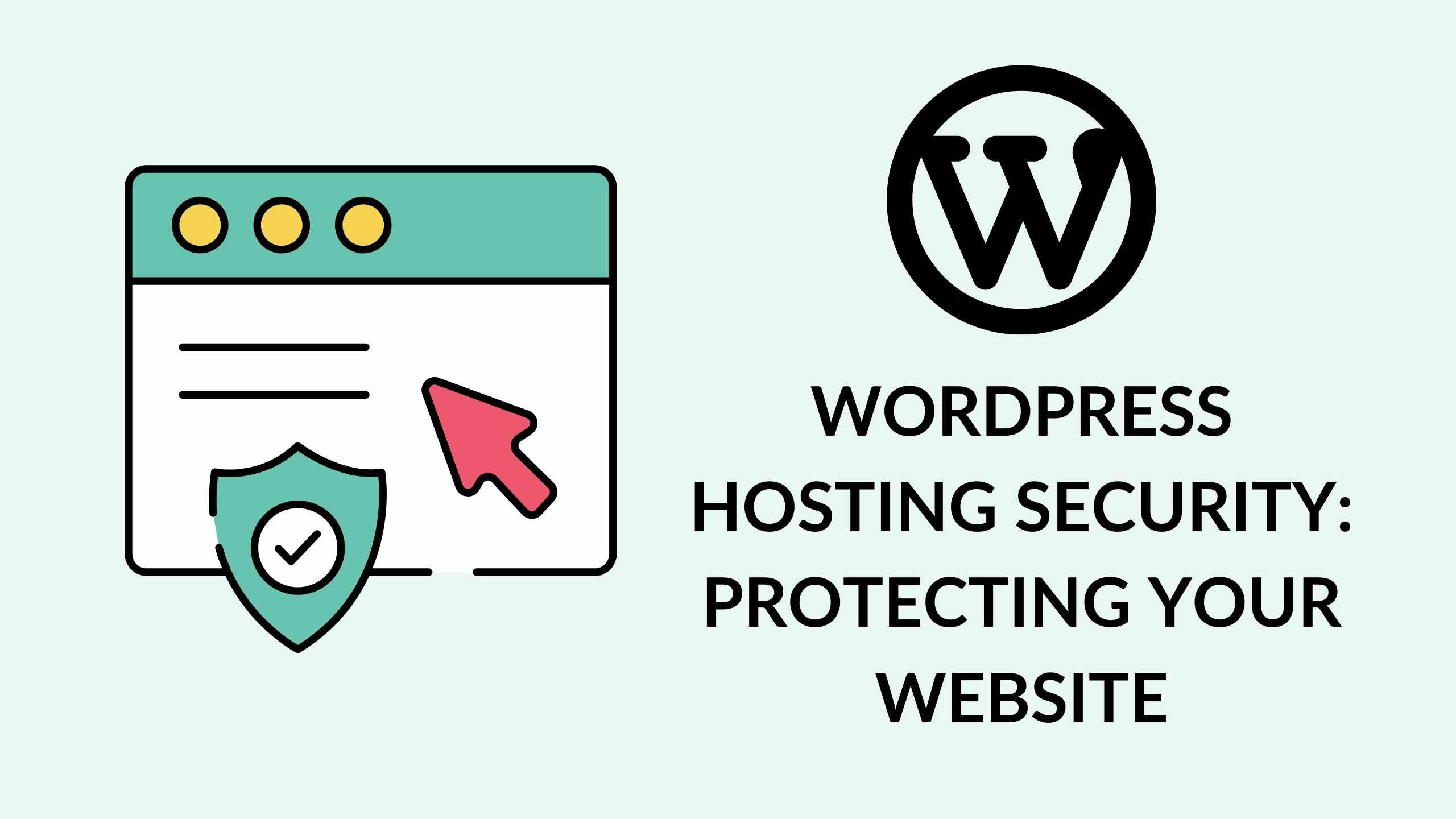WordPress Hosting Security: Protecting Your Website
-


WordPress Hosting Security: Protecting Your Website
When it comes to running a website on WordPress, ensuring the security of your site is paramount. WordPress hosting security is not just a feature; it’s a necessity in today’s digital landscape. In this article, we’ll explore how you can protect your WordPress website and delve into the measures taken by hosting providers to safeguard your site and data. Let’s start by understanding the crucial role of security in your WordPress journey.
The Importance of Website Security
Website security is a topic that should never be underestimated. In a digital world where cyber threats are constantly evolving, your WordPress site is exposed to various risks, including data breaches, hacking attempts, and malicious attacks. It’s not just about protecting your content; it’s about safeguarding your reputation, your visitors, and your peace of mind.
How Hosting Providers Protect Your Site and Data
Encryption, by Default
One of the first lines of defense for your WordPress site is encryption. Strong encryption ensures the privacy and security of your data. Reputable hosting providers automatically serve your WordPress site over SSL (Secure Sockets Layer), which establishes a secure connection between your website and its visitors. This means all data transmitted between the server and your visitors is encrypted, making it incredibly challenging for malicious actors to intercept or tamper with the information.
Firewalls
Hosting providers employ firewalls to add an additional layer of security. Firewalls monitor incoming and outgoing network traffic, aiming to block unauthorized access and potentially harmful data. This helps protect your site from various online threats and unauthorized attempts to access your WordPress admin area.
Monitoring Suspicious Activity
Continuous monitoring of web traffic is essential to detect and mitigate suspicious activity. Hosting providers keep a vigilant eye on your site’s performance and security. They employ security measures to guard against Distributed Denial of Service (DDoS) attacks, a common method used by cybercriminals to overwhelm websites with traffic and disrupt their normal functioning. By monitoring traffic patterns, hosting providers can identify and respond to unusual activity promptly.
Security Testing
Reputable hosting providers regularly test the security of their services. This proactive approach helps identify and address potential vulnerabilities before they can be exploited by malicious actors. To further bolster their security efforts, hosting providers often operate bug bounty programs, rewarding individuals who discover and report security issues. This collaborative approach ensures the ongoing improvement and fortification of hosting security.
Data Backup and Recovery
Disasters can strike at any time, whether it’s a power supply failure, a natural disaster, or a human error. Hosting providers understand the importance of data continuity. They implement robust data backup solutions, ensuring that your WordPress site’s data is regularly and securely backed up. In the event of data loss, these backups allow for a swift recovery, minimizing potential downtime and data loss.
How You Can Enhance Website Security
While hosting providers play a crucial role in protecting your site, there are steps you can take to enhance the security of your WordPress website. Here are some best practices:
Keep Your Secrets Secret
Your password is the gateway to your online presence, making it the weakest link in your security chain. Ensure your password is strong and not easily guessable. Avoid common phrases, birthdates, or names of pets. A strong password often includes a combination of letters, numbers, and special characters.
Log Out of Your Account
Logging out of your account when you’re finished working is a simple but effective way to protect your account. This practice is especially important when using shared or public computers. Failing to log out can expose your account to unauthorized access.
Control Site Access
If your WordPress site involves multiple users, make use of user roles to control access. Different roles determine users’ capabilities, from basic contributors to full administrators. Assign the appropriate roles to users based on their responsibilities to prevent unintended changes or access.
Two-Step Authentication
Enabling two-step authentication adds an extra layer of security to your WordPress login process. It requires you to enter a unique code, often sent to your mobile device, in addition to your password. This way, even if someone gains access to your password, they won’t be able to log in without your mobile device.
Choose a Strong Password
Modern password management is a critical aspect of website security. Password managers generate and store strong, unique passwords for each of your accounts, ensuring you don’t have to remember them. This minimizes the risk of using weak passwords across multiple sites.
Wrapping Up
Securing your WordPress website is an ongoing commitment, and it’s a shared responsibility between you and your hosting provider. While hosting providers employ multiple layers of security to protect your site and data, following best practices, such as using strong passwords and enabling two-step authentication, is vital. By working together, you can ensure that your WordPress site remains a fortress against the ever-evolving landscape of online threats.
For more in-depth guidance on WordPress security, you can explore the following resources:
- Elegant Themes – WordPress Security: A Step-by-Step Guide
- Search Engine Journal – How to Secure Your WordPress Site
- HubSpot – The Ultimate Guide to WordPress Security
- WPBeginner – 12 Tips to Secure Your WordPress Site
- Hostinger – How to Secure Your WordPress Website: A Comprehensive Guide
Remember, security is not just a feature; it’s a commitment to safeguarding your online presence. Stay vigilant, stay secure, and enjoy the peace of mind that comes with a protected WordPress website.








